This sikh guard stares and intimidates the visitors, his bushy eye brow and red turban adding to his aura. He is the guardian of someone’s tomb.
Due to recent interest in Bukit Brown cemetery, Mr Sikh has become an icon on this plot of burial ground.
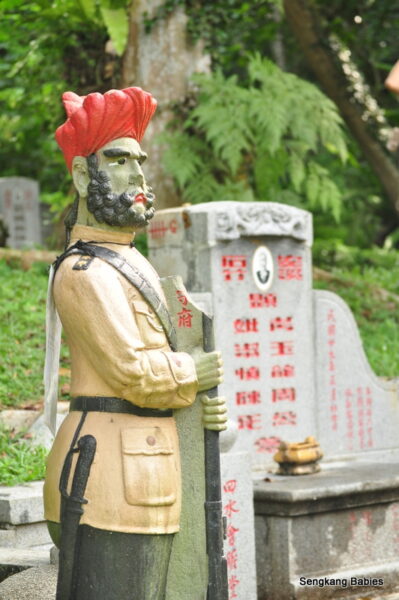
Welcome to Bukit Brown cemetery, the older Chinese will prefer to call it Kopi-Sua (Hokkien translation as 咖啡山, coffee hill). Housing 200,000 graves, we heard this is one of the biggest Chinese burial plots outside of China.
Some graves could be dated back to 1833 Qing Dynasty! Some corners were believed to have been used as mass burial ground during the Japanese occupation in World War 2.

Daddy went for an orientation on 04Mar. After early briefing, we split into groups and started our history lesson. Our guides for today are Keng Kiat, Claire, Peter and Viki.

Tombstone story telling, literally. Our guides explain to us the significance of each couplets, designs etc.
Even the calender looks different because different era use different system (太平天國, Japanese Calender, 道光 and even 民國)
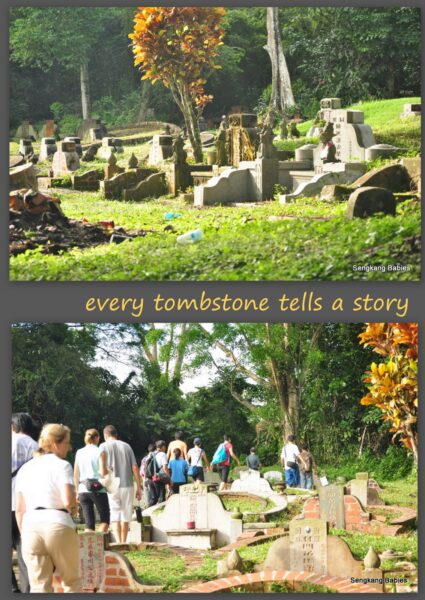
Every piece of marble, head stone, granite, tells us a little bit more about the family, province, dialect, family members, and background.

These tags and booklets are documentation done by the volunteers. Your personal Bukit Brown streetdirectory 🙂
Some of the grave owners are ancestors of businessmen and politicians. The 72nd descendent of sage Confucious 孔子 is here at Bukit Brown too. Some street names and buildings are named after illustrious pioneers.

Video : peaceful Bukit Brown… for now.
The Rich and the not-so-rich. Chinese believe in Fengshui, thus the higher ground yield more prosperity and health for descendents.
We noticed those across the road are less maintained, maybe the owners had more humble origins?
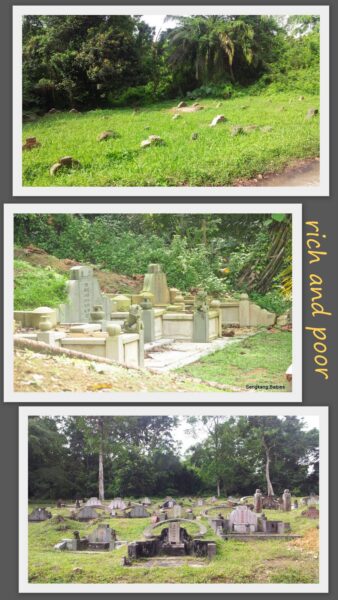
Our guides mention that a lot of clearing is ongoing, as Qing Ming 清明节 is just around the corner. Workers are busy sprucing up the grave compounds.
We heard these graveyard workers used to live in small communities within the burial plot. Visiting family members will pay them a token to maintain their ancestor’s grave.

We are not the only ones enjoying Bukit Brown’s greens and serenity.

Lush greenery, and abundant tree foliage, this could be a nature park, although Daddy will hesitate to jog here in the wee hours :p

Spot magnificent horse, squirrels and even kingfishers.

Knowledge transfer. Today, we barely manage to absorb 100 years of history into 2 hours trekking.
Claire share interesting nuggets like why Ngee Ann City is shape like a tomb, with the five flagposts as it’s joss sticks ! Apparently, Ngee Ann City, yes Takashima, is build on top of a former grave site. To please the spirits, fengshui masters recommend redesigning Ngee Ann City.
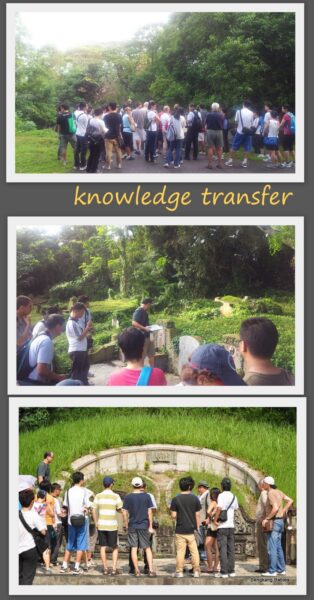
Artifacts, each one is a piece of art, craft by handyman of yesterday.

蝙蝠 (Bat, sounds like 福 prosperity) and 麒麟 (Qilin) are auspicious for the Chinese.
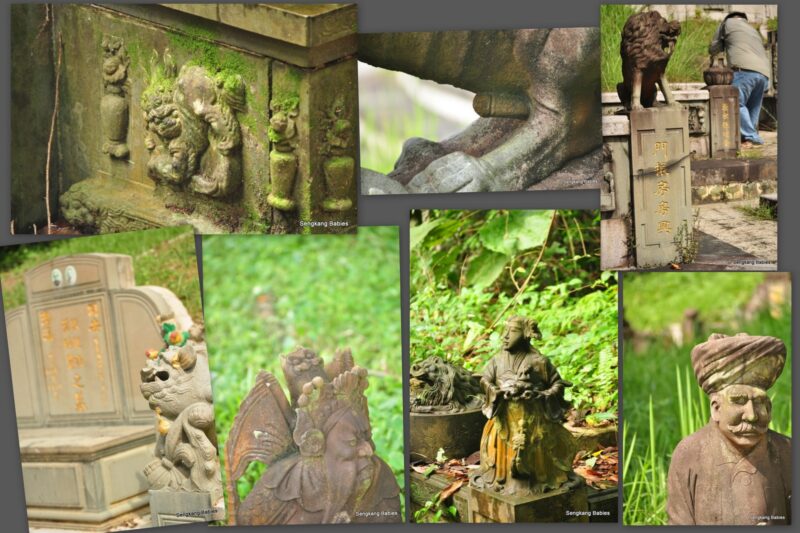
Even loyal and favourite pets are buried next to their owners, while those with status will have 福神 (guardians) for protection. Some VVIP’s 福神 graves are even bigger than common graves !

The biggest grave belongs to Mr Ong Sam Leong. It even comes with a moat ! We heard the kids in olden days will actually swim in the moat after heavy rain ! Look at video clip above for an estimation of his grave size.

Talk about affluence and prestige, end of the day, what we need is only a small plot of land.

When we visit Bukit Brown, we do not talk about death and afterlife, what we learn today is a deeper appreciation of Singapore’s early years.
Daddy has only been to a few Qing Mings long time ago, and Qing Ming was actually treated as a family-gathering when relatives catch up to visit and pay respect to their ancestors.
If you love the great outdoors, or enjoy nature photography, visit Bukit Brown, before the government builds a 8-lanes expressway to cut BB into two.
–> http://bukitbrown.com
–> Fanpage All Things Bukit Brown
–> More photos at SengkangBabies fanpage
For those interested in morbid details, visit wiki’s subject on Death in Singapore.
